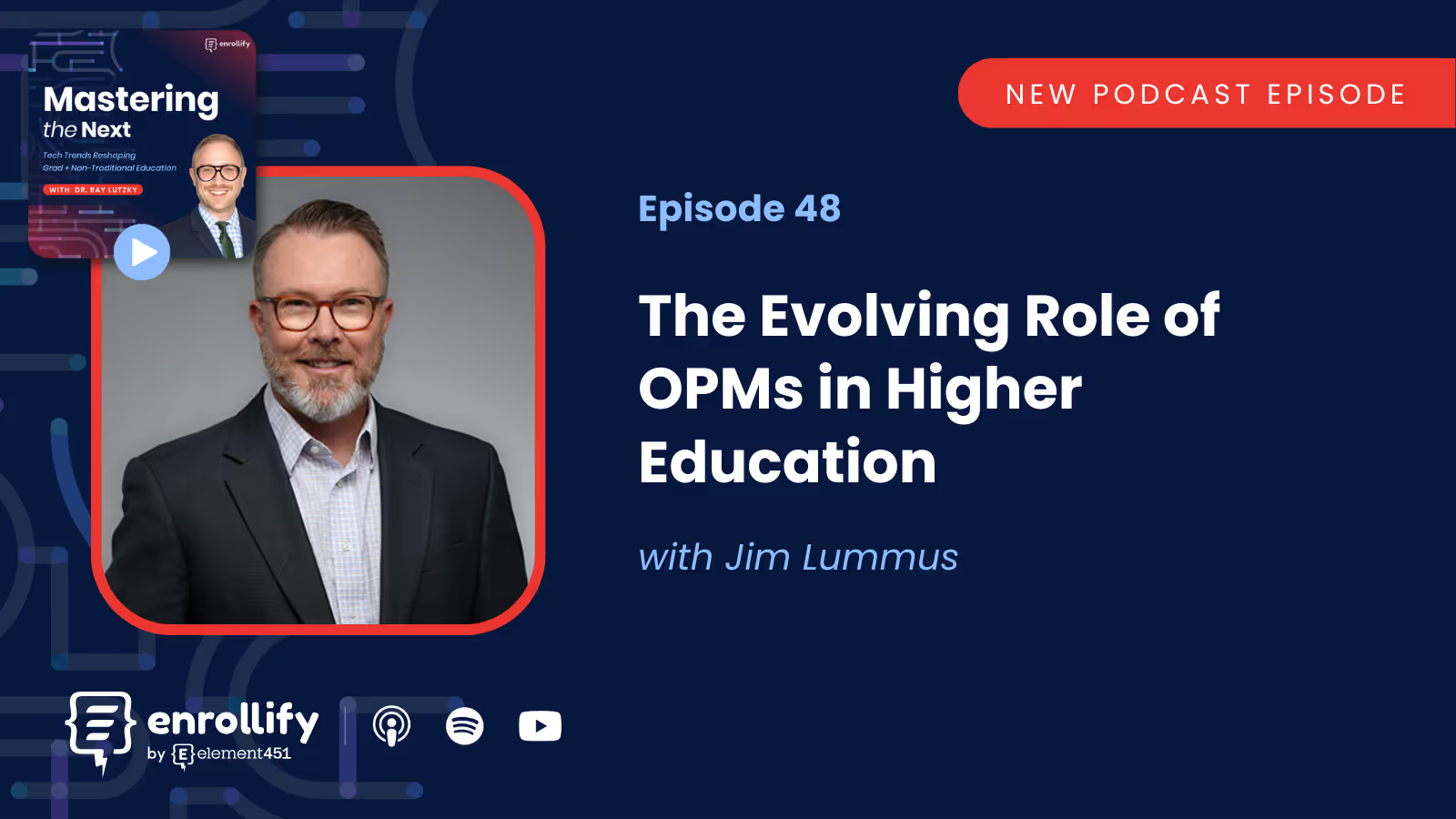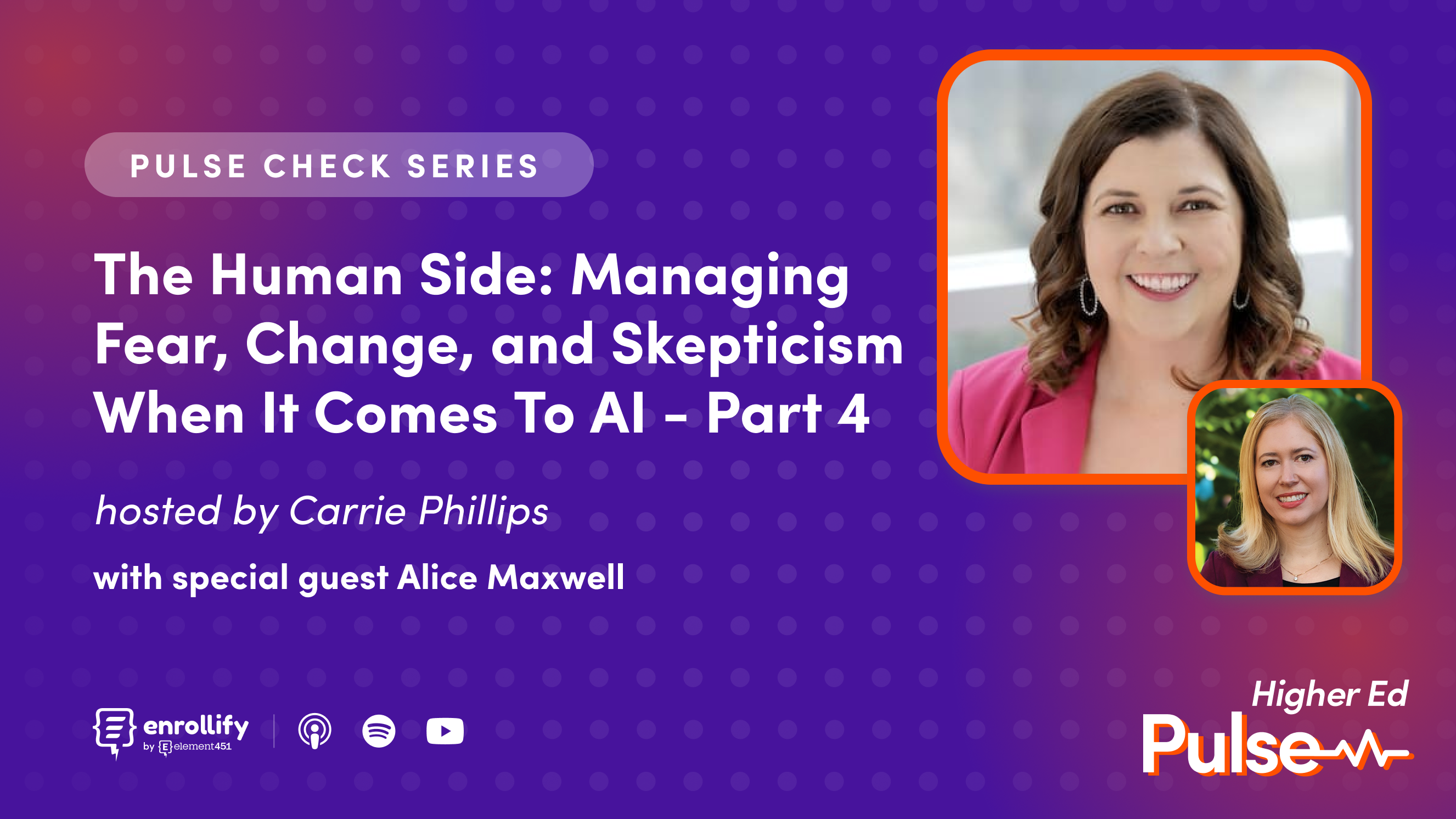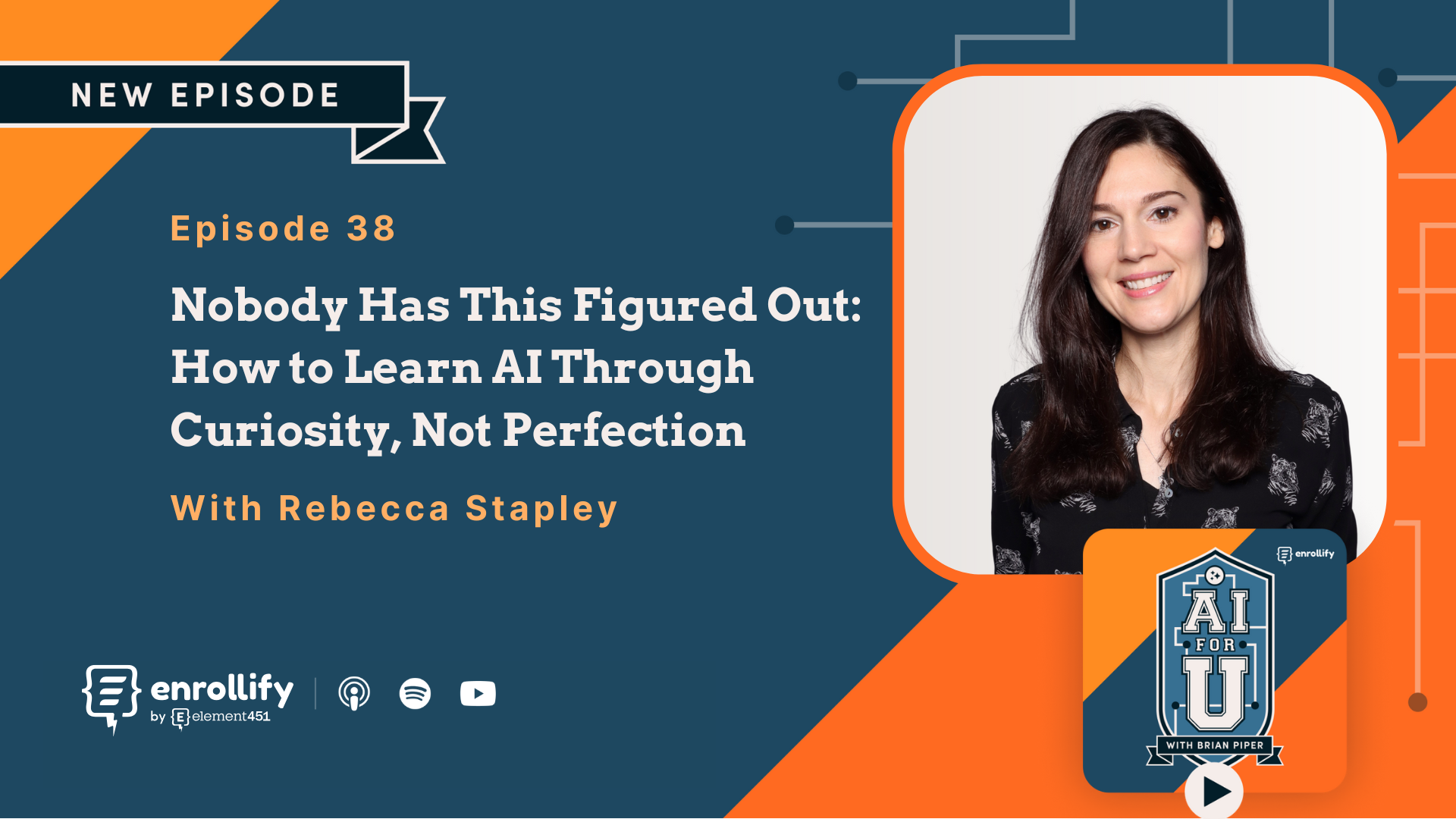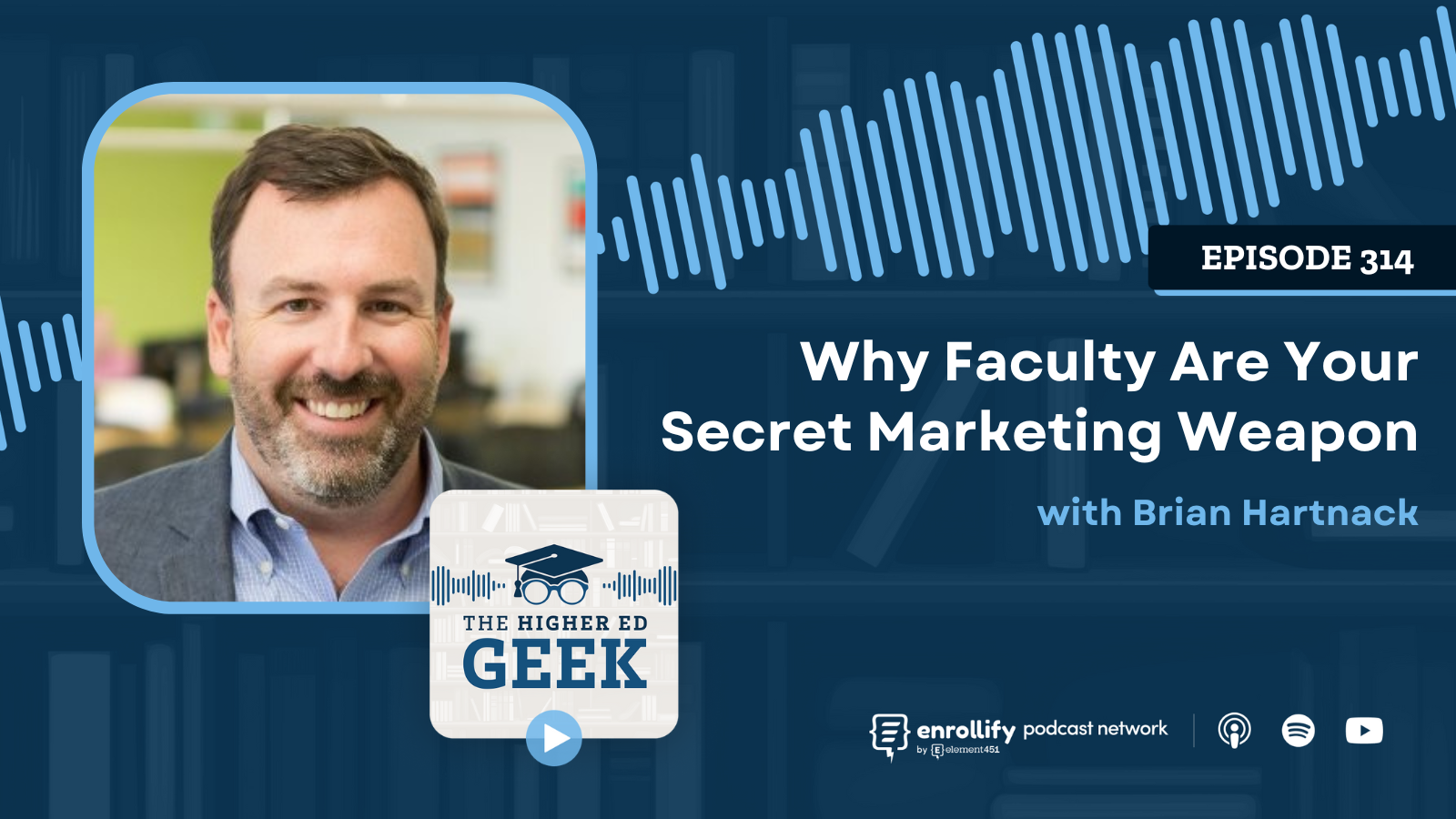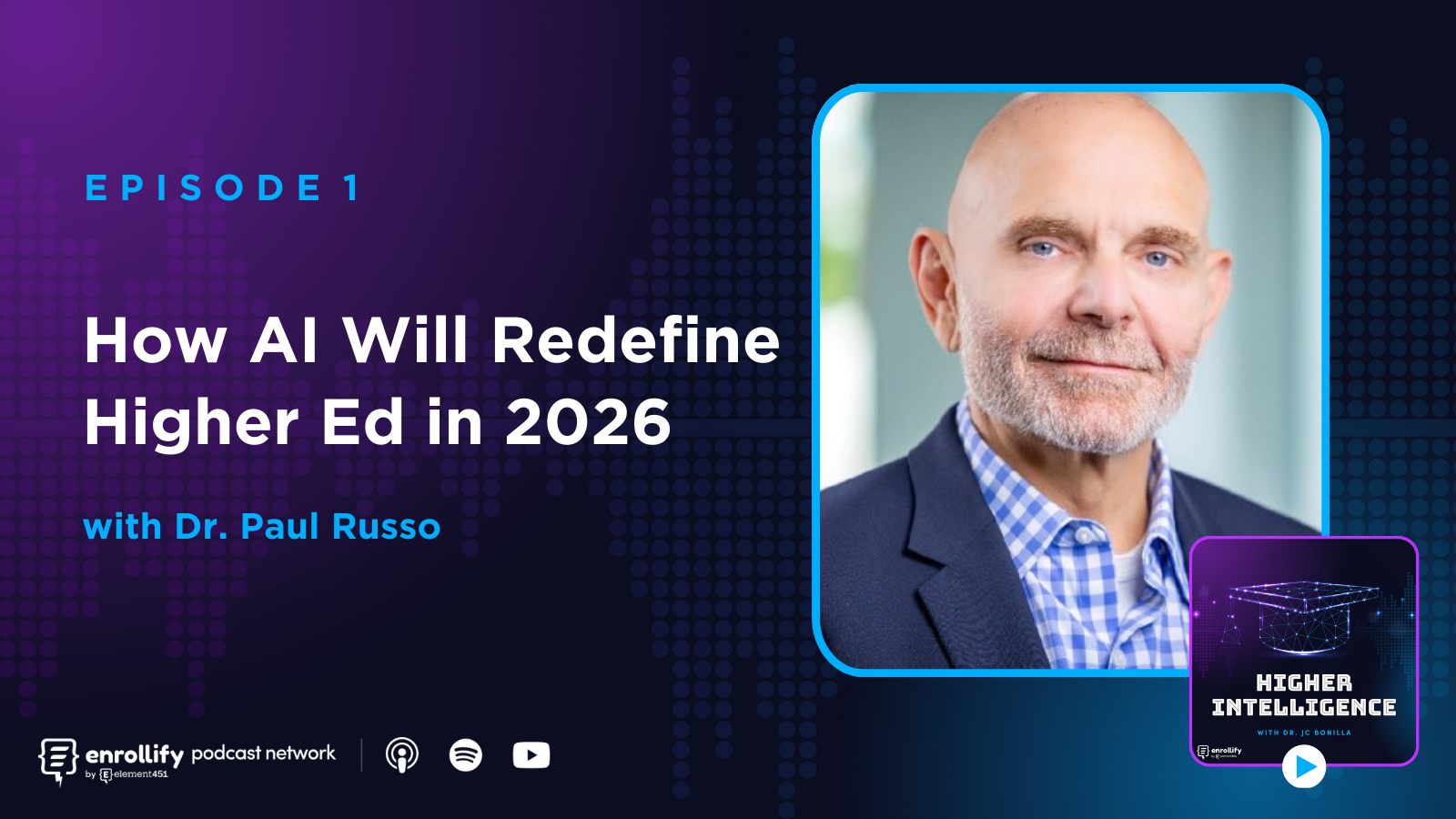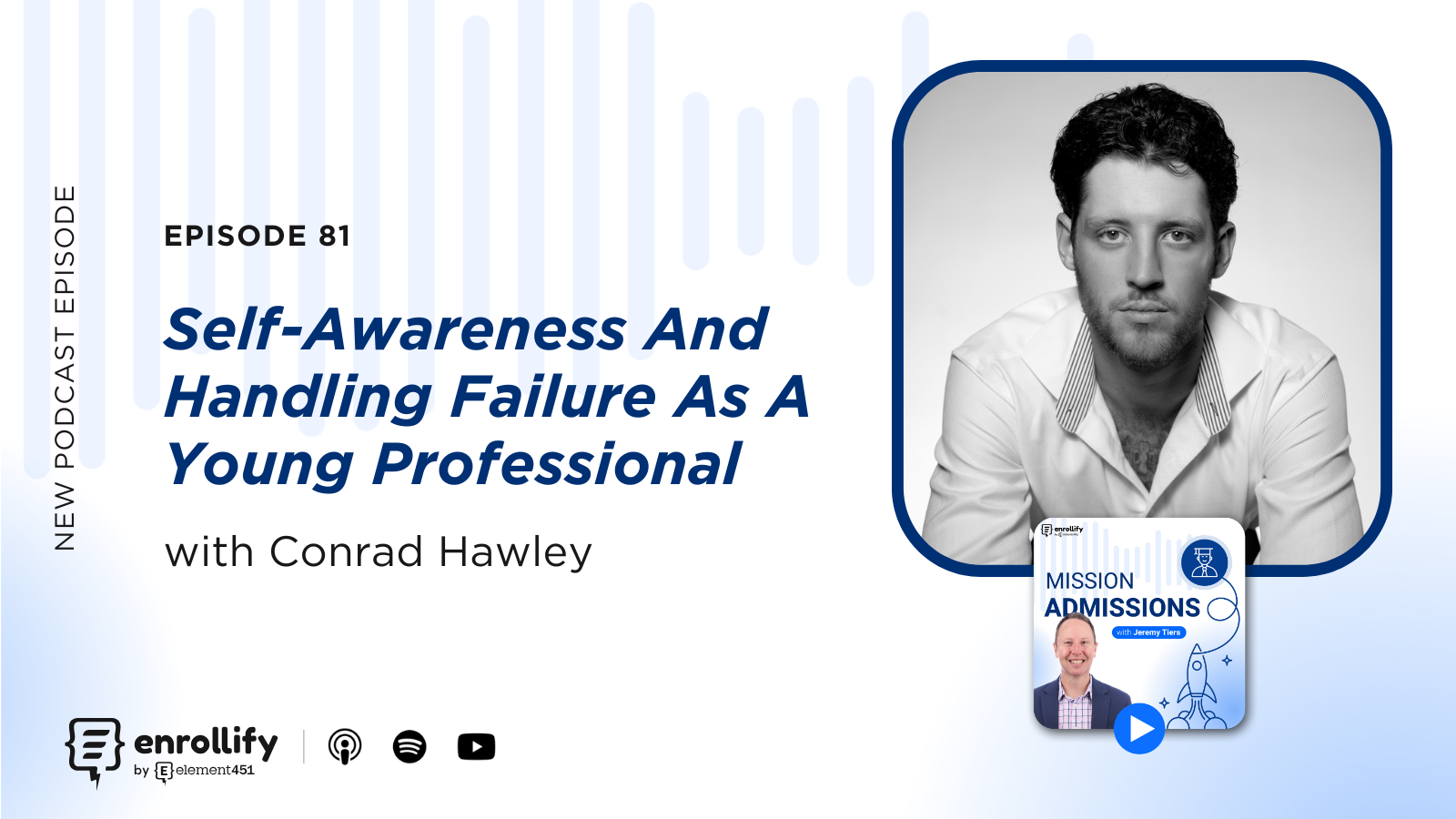About the Episode
Got a story to tell? An innovative idea to share? Fill out our guest nomination form and let's chat!
About the Episode:
Online program management (OPM) companies play a crucial role in helping universities navigate the complexities of digital education and online student recruitment. But as skepticism around the OPM model has grown, institutions must carefully weigh their options. In this episode, Ray sits down with Jim Lummus, Executive VP - University Solutions at AllCampus, to break down common misconceptions about OPMs, how universities can maintain control while scaling online, and why different financial models — such as revenue share and fee-for-service — fit different institutional needs.
Join us as we discuss:
- [2:39] Skepticism and misconceptions around OPM partnerships
- [12:06] Revenue sharing versus fee-for-service models
- [19:35] What school presidents should consider when outsourcing OPM
To hear this interview and many more like it, subscribe on Apple Podcasts, Spotify, or our website, or search for “Mastering the Next” in your favorite podcast player.
Why Is There Still So Much Skepticism Around OPMs?
Jim Lummus acknowledges the increased skepticism surrounding online program managers (OPMs), especially in recent years. Much of this doubt, he argues, comes from outdated perceptions. Early models may have lacked transparency or limited institutional control, but the modern OPM landscape is far more collaborative. According to Jim, when done right, OPMs allow universities to stay focused on their academic mission while outsourcing enrollment, marketing, and support services to specialists — much like hiring a contractor instead of DIY-ing home renovations.
He reflects on a conversation with a Boston University dean early in his career, who said, “We could learn what you do, but it's not our core mission.” That ethos still holds. OPMs bring in cutting-edge marketing and enrollment strategy — areas where many institutions lack internal capacity or resources. And for schools aiming to grow, that external expertise can be the difference between success and stagnation.
What Are the Biggest Misconceptions About Working with an OPM?
One of the most common misconceptions, Jim says, is the fear of losing control — over curriculum, standards, or student experience. But many modern OPMs, like AllCampus, steer clear of influencing academic design or instruction. In fact, AllCampus outsources instructional design entirely and focuses on what they do best: marketing, recruitment, and student support.
Another lingering myth is that the revenue share model is inherently predatory or unfair. Jim counters this, calling revenue share “essentially a no-interest loan,” where the OPM shoulders upfront costs and only gets paid when students persist through a program. It's high-risk for the provider — especially when student retention is key to any profit — and a win for schools that can't afford multimillion-dollar marketing budgets.
Finally, there’s concern about portfolio overlap — i.e., an OPM managing multiple similar programs. But Jim points out that student choice is nuanced, based on geography, school type, rankings, cost, and delivery model. Serving multiple clients doesn’t mean the same student will apply to all of them, and universities should trust that their uniqueness is still their strength.
How Do Revenue Share and Fee-for-Service Models Compare?
In a time when many institutions face financial constraints, the revenue share model remains appealing. Jim breaks down the math: OPMs typically spend thousands upfront to acquire a student and only recoup those costs as the student progresses. It’s a model built on performance — if the student doesn’t stick around, neither does the margin.
Fee-for-service models, on the other hand, shift the financial risk to the institution. These models work best for well-resourced schools looking to build internal capacity and gain more operational control. But they require significant investment, and many institutions quickly realize they underestimated the cost and complexity of modern enrollment marketing.
Interestingly, Jim sees a rise in shared-risk models — hybrids between revenue share and fee-for-service — where both parties invest in and benefit from student success. This structure fosters transparency, mutual accountability, and deeper collaboration, often leading to more sustainable long-term outcomes.
How Should Presidents and Provosts Evaluate OPM Partnerships?
Jim offers a powerful reminder: fit matters. Too often, partnerships are chosen based solely on price or short-term gains, without considering values, working styles, or long-term alignment. He advises university leaders to focus on discovering who their potential partners really are — the people, the culture, and the mutual goals.
At the end of the day, it’s not just about the services offered. It’s about how those services are delivered, how success is measured, and whether the partner feels like an extension of your own team. Jim shares a recent client’s feedback: “It feels like we’re their only partner.” That’s the kind of collaboration that fosters trust and drives results.
Where Is Online Education Headed in the Next 5 Years?
We’re no longer asking whether digital transformation is happening — it is. But the question now is: how will universities adapt? Jim sees institutions embracing not just online learning, but digital-first experiences across the student lifecycle. From application to graduation, students expect frictionless, personalized, tech-enabled journeys — and universities must deliver.
Looking ahead, Jim predicts a comeback for revenue share models, especially as federal scrutiny settles and financial pressure intensifies. But he’s equally bullish on hybrid models and smart outsourcing strategies that let universities stay agile. Institutions must also revisit their program portfolios — not every degree belongs online, and the market is too competitive for generic offerings.
The key is balance: knowing what to build, what to buy, and how to partner strategically for success in a student-first, digitally driven landscape.
Connect With Our Host:
About The Enrollify Podcast Network: Mastering the Next is a part of the Enrollify Podcast Network. If you like this podcast, chances are you’ll like other Enrollify shows too!
Some of our favorites include The EduData Podcast and Generation AI.
Enrollify is produced by Element451 — the next-generation AI student engagement platform helping institutions create meaningful and personalized interactions with students. Learn more at element451.com.
Attend the 2025 Engage Summit!
The Engage Summit is the premier conference for forward-thinking leaders and practitioners dedicated to exploring the transformative power of AI in education.
Explore the strategies and tools to step into the next generation of student engagement, supercharged by AI. You'll leave ready to deliver the most personalized digital engagement experience every step of the way.
👉🏻 Register now to secure your spot in Charlotte, NC, on June 24-25, 2025!







